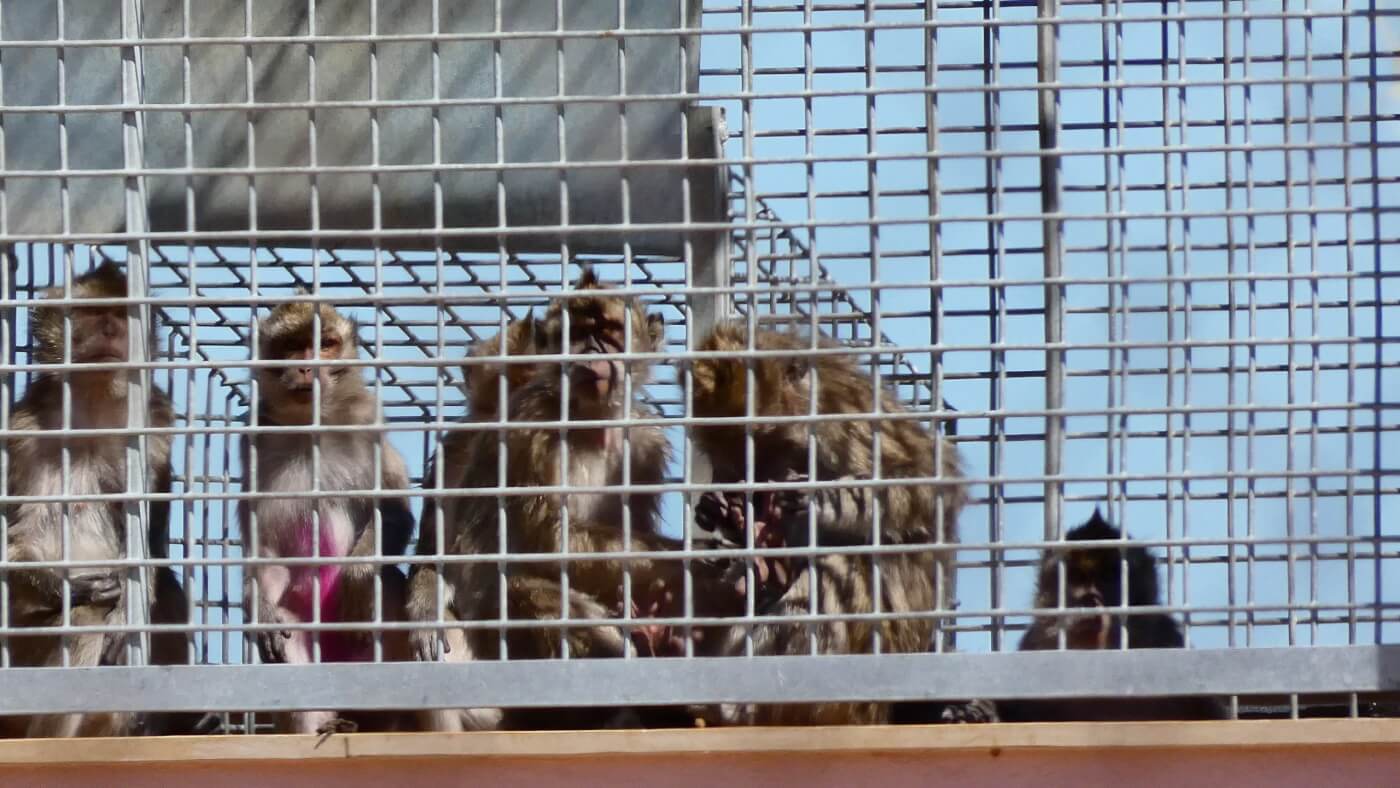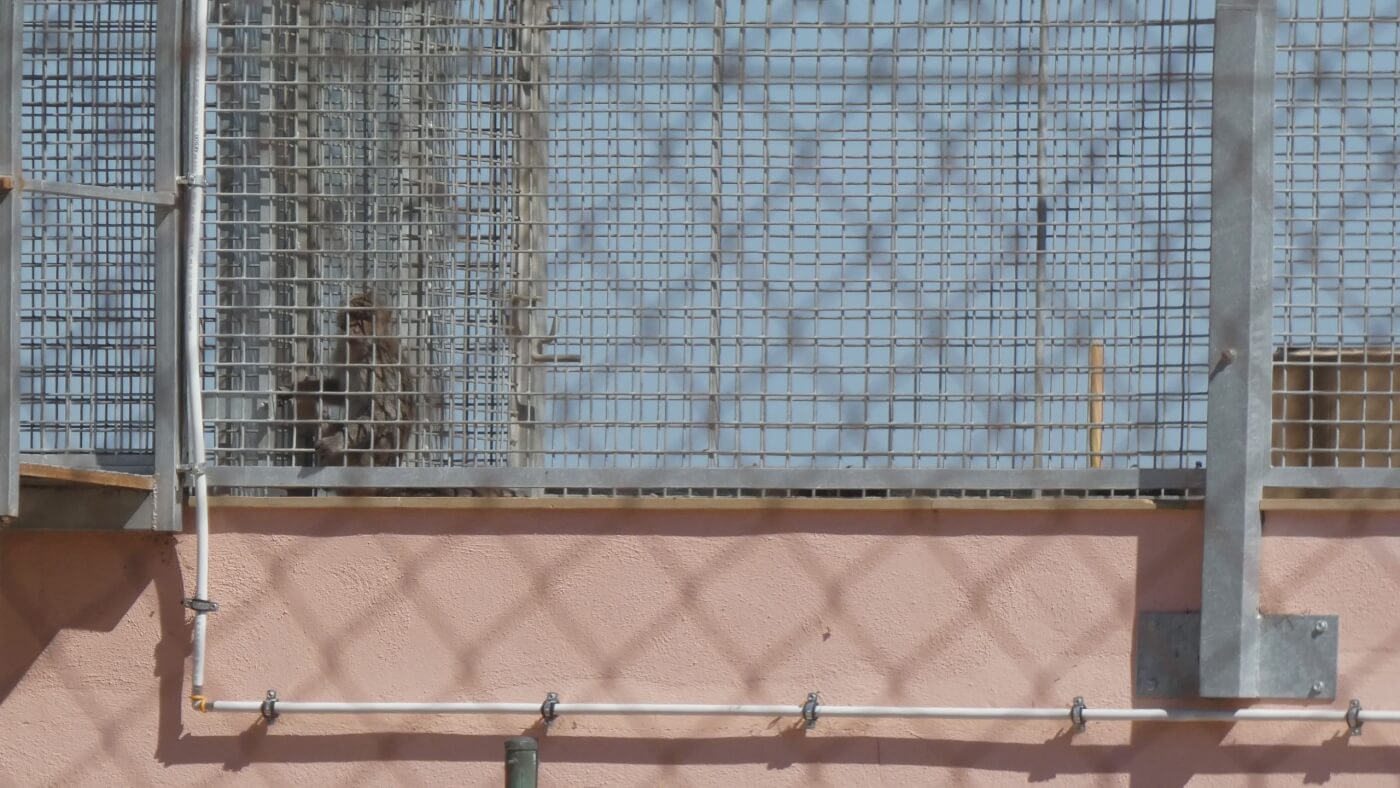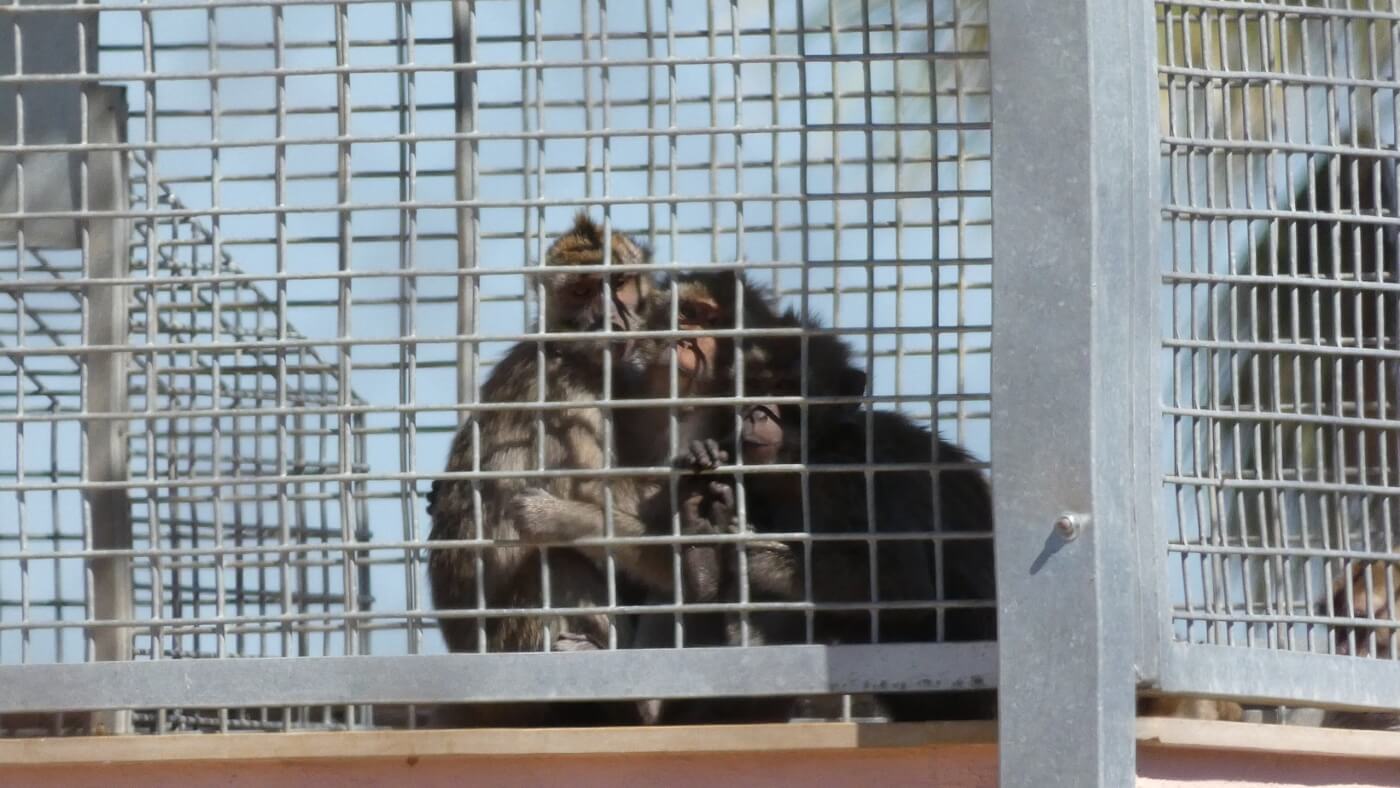PETA Urges World Health Organization to Act On Increased TB Infection Risk
PETA is urging the World Health Organization (WHO) and the World Organization for Animal Health (WOAH) to compel their member states to halt the movement of endangered monkeys around the globe—both for the sake of exploited animals and to prevent the spread of tuberculosis (TB) along with them.
The letters were prompted by a just-published major and damning exposé by anti-animal experimentation group Abolición Vivisección, which is based in Spain, showing significant and dangerous negligence at Camarney—the largest monkey prison in Europe. The monkeys imported by this company come mostly from Mauritius, where there has been a TB outbreak that can be dangerous for humans who work in the laboratories where the monkeys end up.
Camarney is owned by Noveprim Limited (a Mauritian company), and 49% of the shares of that company are owned by the notorious Charles River Laboratories.
PETA’s letter alerts officials at the WHO and the WOAH to the problems Abolición Vivisección found at Camarney, including the following:
- The health certificates for some monkeys were missing, making it impossible to trace their origins or health histories.
- In December 2018, inspectors were unable to enter parts of the facility where monkeys were kept because Camarney didn’t have updated TB test results.
- Neither cause-of-death nor necropsy results were recorded for macaques who had died at the facility.
- The hospital unit was not structurally segregated and did not provide appropriate isolation from the general population.
- Sanitary conditions were inadequate.
These problems are dangerous on their own—since trade in long-tailed macaques is recognized as a driver of spillover risk and disease spread—but they also violate the guidelines the WOAH relies on to enforce standards for animal health. And the Camarney case is not the first.
Outbreak on Mauritius Monkey Farm
In May, 200 monkeys at Bioculture Mauritius, the island nation’s largest exporter of macaques to facilities in the U.S. and Europe, were euthanized during an outbreak of tuberculosis.
Bioculture continues to ship monkeys. Whether the company abides by the WOAH standard that states “no case of tuberculosis … has occurred during the last two years prior to shipment in the building where the animals are kept” is unknown.
Inadequate TB Testing in the U.S.
States across the U.S. have allowed monkeys to be boxed up and trucked across the country from laboratory to laboratory without timely TB tests. The guidelines promoted by the WHO and the WOAH state that monkeys shipped internationally should pass two TB tests, two weeks apart, in the month before shipping.
But PETA recently documented that nine states appear to have violated this standard on at least 25 separate occasions since August 2021. These state-to-state transports in cramped trucks, which can take more than 24 hours, should be held to the same international standard.
TB Outbreak at Michigan Laboratory
In Michigan, a reportable disease investigation was initiated after employees at a primate facility were exposed to wild-caught monkeys imported from Mauritius and two workers were referred for treatment. These animals would have undergone multiple tests for TB while in quarantine, as mandated by the Centers for Disease Control and Prevention (CDC). They would also have been tested for TB prior to being exported from Mauritius.
Documents from the CDC show that beginning in 2021, there was an eightfold increase in the detection of TB in imported monkeys to the U.S. during the CDC-mandated quarantine. The Michigan outbreak is the most recent example of infected monkeys exiting that quarantine.
What You Can Do
Charles River is embroiled in its own scandal after allegedly violating importation laws. More than 1,000 endangered long-tailed macaques the company brought to the U.S. last year are apparently still held inside its barren steel cages, and PETA is pushing authorities to order their release to reputable sanctuaries. The experimentation industry ships long-tailed macaques globally, despite the WOAH statement that endangered species should be used for experiments only in “exceptional circumstances.”
Tell the feds to stop stalling and send the 1,269 endangered long-tailed macaques in legal limbo at Charles River Laboratories to a sanctuary:




